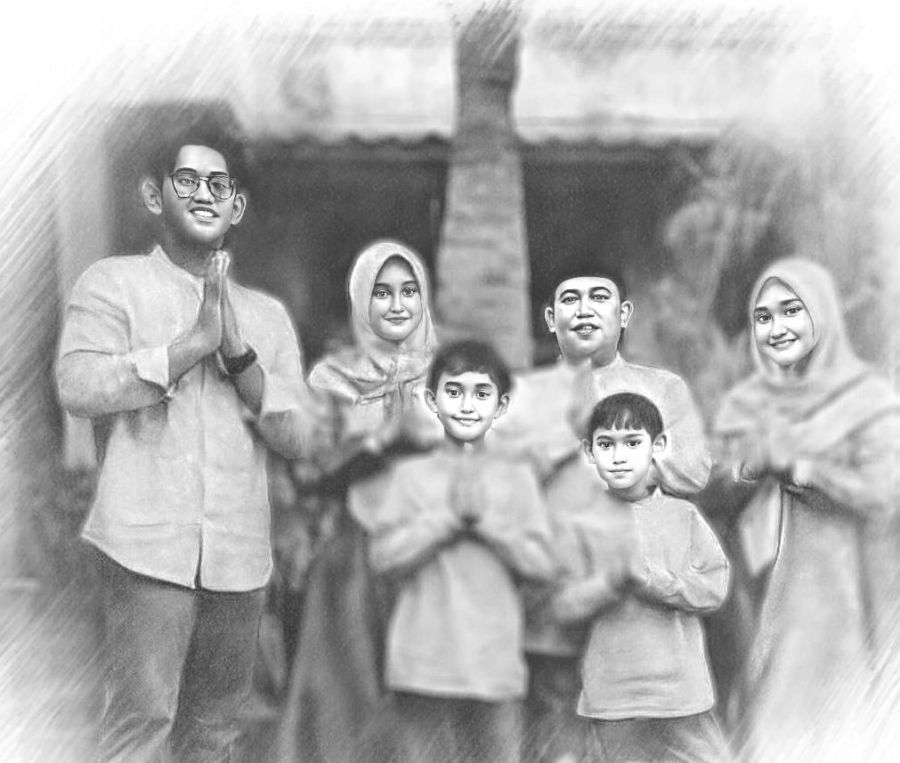Eid Homecoming: Stories from the Diaspora

Eid homecoming (mudik Lebaran) is more than just a trip back to one’s hometown.
More Than Just a Journey Home
Eid homecoming (mudik Lebaran) is more than just a trip back to one’s hometown. It is a story of longing fulfilled, struggles recounted, and hope that continues to burn brightly. From generation to generation, this tradition has been an inseparable part of the lives of those who migrate in search of a better future.
The tradition of mudik dates back to the era of Indonesian kingdoms, even before Majapahit and Mataram Islam. The word mudik originates from Javanese, an abbreviation of mulih dilik, which means “going home for a short while.” In Malay, udik means “upriver” or “upstream,” reflecting the habit of Malay communities migrating from the coast to the interior to reunite with family.
The term mudik Lebaran gained popularity in the 1970s when many villagers migrated to big cities like Jakarta. Since then, mudik has become an annual ritual, not only a physical journey but also a journey of the heart—to reconnect with loved ones and relive cherished memories.
Tales from the Diaspora: Struggles and Triumphs
Every migrant has a different life journey, reflected in the stories they share upon returning home. Some come back in a brand-new car, the result of years of hard work. Others proudly show photos of the house they finally built. Some are overwhelmed with emotion, as this is their first return home after years of only communicating through phone calls, WhatsApp messages, or video calls.
However, not all migrant stories are about luxury. Some return home after years of saving every penny to afford the journey. Some finally make it back with their families, feeling proud that they no longer have to live out the lyrics of the song by Armada, “Ashamed to return, but longing if I stay away.”
Sharing Wealth: A Joy Beyond Measure
Mudik is also a time to share blessings with family. In Javanese culture, this tradition is known as giving pitrah, with different amounts given depending on the recipient—parents, grandparents, uncles, aunts, nieces, nephews, or close neighbours. Another common practice is bringing Eid gift hampers when visiting relatives, with younger family members typically visiting and paying respects to the elders.
The act of giving pitrah is more than just a tradition. There is a sense of joy and gratitude in being able to give. Parents’ eyes shine with pride as they listen to the stories of their children’s successes. And there is a deep hope that these blessings will continue to multiply. As the Quran states in Surah Adh-Dhuha (93:11): “Wa ammâ bini‘mati rabbika fa ?addits”—“And proclaim the blessings of your Lord.”
Success is a Continuous Journey
Success achieved today should not be the final destination—it should be the starting point for even greater accomplishments. The Kaizen principle teaches that today must be better than yesterday, and tomorrow must be better than today. This mindset drives migrants to continuously improve their lives.
As Peter Drucker, the father of modern management, once said: “If you can’t measure it, you can’t manage it.” Every individual should set higher success targets each year, aligned with their potential. Goal-setting must be carefully planned, implemented, monitored, and evaluated to ensure progress towards the desired achievements.
Independence: A Pillar of Success
In today’s technological era, financial independence is key to maintaining balance in personal, social, and spiritual life. Every aspect of life requires financial resources, making independence a fundamental skill that must be cultivated.
This aligns with the Tri Sukses concept, part of the 29 Noble Character Traits developed by LDII. Specifically, the third success—Independence (Mandiri). Each individual must possess skills and life competencies (life skills) to secure a sufficient livelihood, ensuring both worldly and spiritual well-being. As narrated by Thabrani, the Prophet Muhammad said: “In the end times, people will inevitably need dirhams and dinars to sustain both their religion and their worldly lives.” In this context, financial independence is an absolute necessity.
Mudik: The Culmination of an Unseen Struggle
Like an iceberg, the grand spectacle of mudik Lebaran is only the visible tip. Beneath it lies years of struggle, sacrifices of time, energy, and effort to accumulate enough resources to return home with pride, happiness, and confidence.
As they enjoy their journey home, some mudik travellers are already planning their activities while in their hometown. Others are thinking ahead: next year, what success story will I share? How can I contribute to my family back home?
Mudik is not just a journey home. It is a journey of the heart, a journey of hope, and a journey of sharing. This year, we share our stories. Next year, what success story will we tell?
About the Author:
Thonang Effendi
Head of the Department of General Education and Training, LDII
Character Education Practitioner and Observer
Editor :Tim Sigapnews

